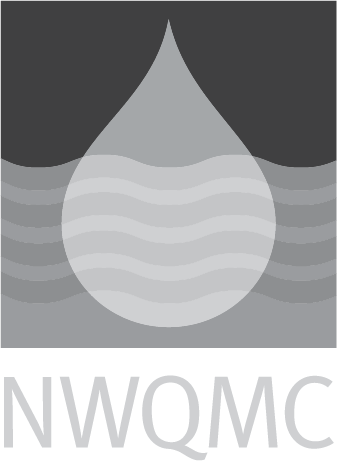ASTM: D5907: Matter, Filterable and Nonfilterable, in Water
|
Official Method Name
|
Standard Test Method for Filterable and Nonfilterable Matter in Water |
|---|---|
|
Current Revision
| Current edition approved May 10, 1996. Originally published as D5907-96 |
|
Media
|
WATER |
|
Instrumentation
|
Gravimetry |
|
Method Subcategory
|
Physical |
|
Method Source
|
|
|
Citation
|
|
|
Brief Method Summary
|
A well-mixed sample is filtered through a weighed standard glass fiber filter. The suspended solids are retained on the filter, which is dried at 105oC and weighed. The increased mass on the filter represents the nonfilterable matter. The filtrate may be used to determine the filterable matter. The filtered sample (liquid phase) is evaporated to dryness and heated to 180oC in a tared vessel to a constant weight. |
|
Scope and Application
|
This test method covers the determination of filterable and nonfilterable matter in drinking, surface, and saline waters, domestic and industrial wastes. The practical range of the determination of nonfilterable particulate matter is 4 to 20000 mg/L. The practical range of the determination of filterable matter is 10 to 20000 mg/L. |
|
Applicable Concentration Range
|
4-20,000 for TSS and 10-20,000 for TDS mg/L |
|
Interferences
|
For some samples, chemical reactions may cause some materials to change from one phase to another. For example, in some groundwaters, ferrous ions may form insoluble ferric hydroxides. Softened water high in carbonates may precipitate calcium carbonate. In such cases, holding time may have a critical impact upon both the filterable and nonfilterable matter. This test method is not meant to include nonrepresentative particulates such as leaves, sticks, insects, fish, etc. These should be removed before the analysis. Some materials may decompose or volatilize at the required temperature. Other substances, such as glycerin or sulfuric acid, will remain liquid at the required temperature, giving variable results. Oils and greases may present similar problems and can end up in either the filterable or nonfilterable portion. Suspended solids samples high in dissolved matter, such as saline waters, brines, and some wastes, may be subject to a positive interference by the retention of dissolved matter, such as salts and sugars, on the filter. Clogging of the filter with too fine or too much material will prolong the filtering time and retain smaller particles that would normally pass through the filter, thus giving elevated values to nonfilterable matter and low values to the filterable matter. Biological material, such as algae, may also prolong filtration time or plug the filter. Some samples may be hygroscopic, requiring prolonged drying, extra careful desiccation, and rapid weighing. For filterable matter, samples highly mineralized or high in bicarbonate may require careful and possibly prolonged drying. For the bicarbonate, the extended drying may be needed to ensure complete conversion to carbonate. For filterable matter, excessive residue in the dish may cause the formation of a water-trapping crust, giving elevated values. |
|
Quality Control Requirements
|
A duplicate and known control sample should be run each day that a sample is analyzed. The duplicate and control sample shall meet satisfactory limits as established by the control chart before an analysis is considered satisfactory. Until such time as other quality assurance/quality control (QA/QC) procedures are established, it is recommended that the user use Practice D 4210 and Guide D 3856 as guides for establishing QA/QC. Before this test method is applied to the analysis of samples, the analyst shall establish his/her own precision and bias data. |
|
Sample Handling
|
Collect the sample in accordance with the applicable ASTM standard as follows: Specification D 1192 and Practices D 3370. |
|
Maximum Holding Time
|
|
|
Relative Cost
|
Unknown |
|
Sample Preparation Methods
|




